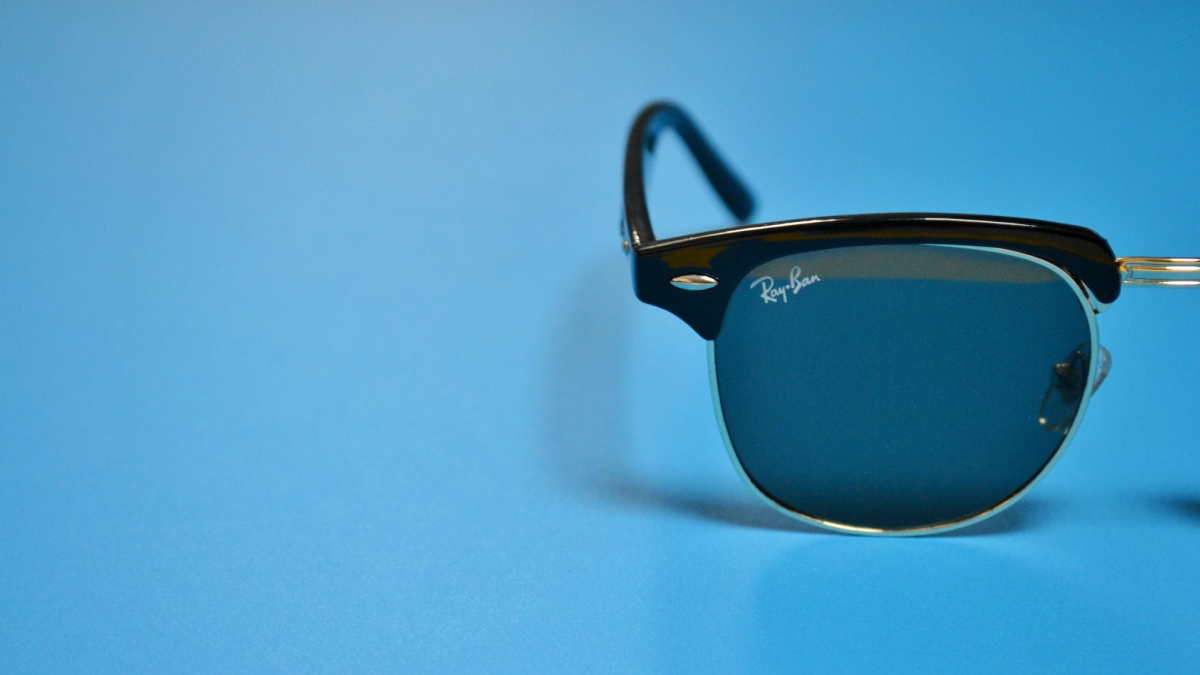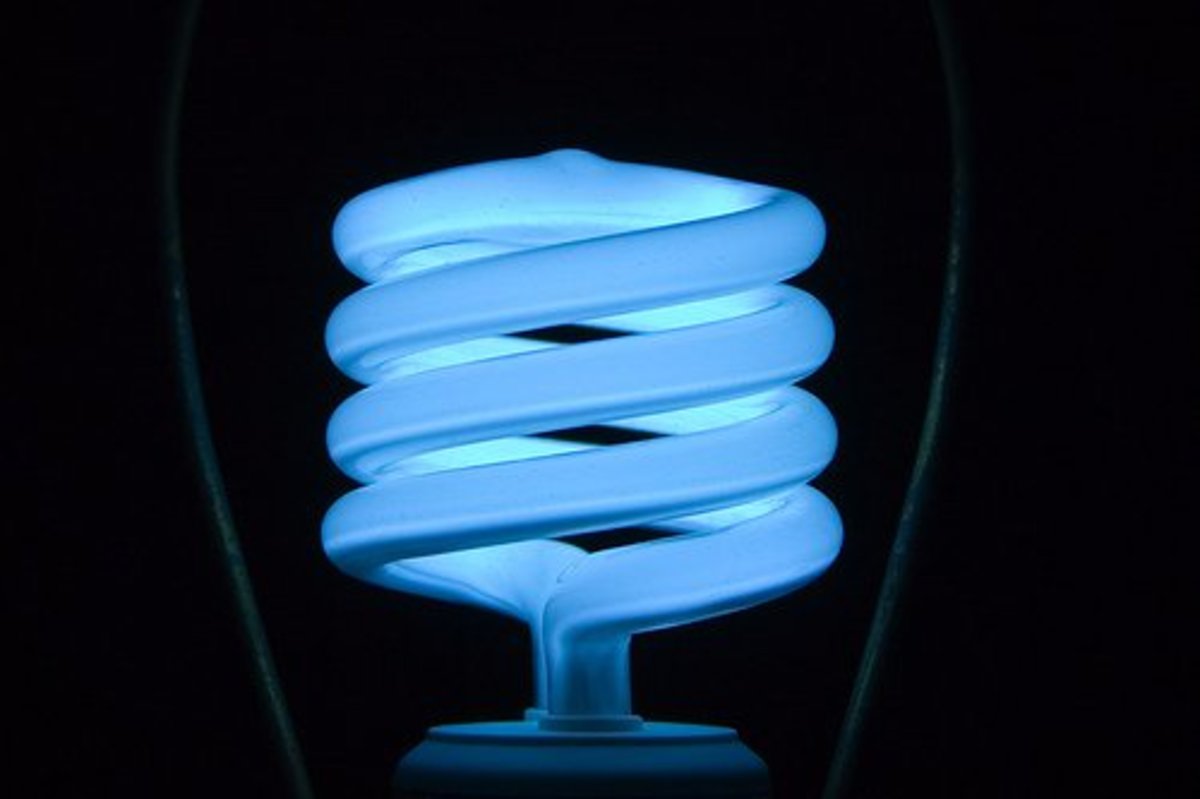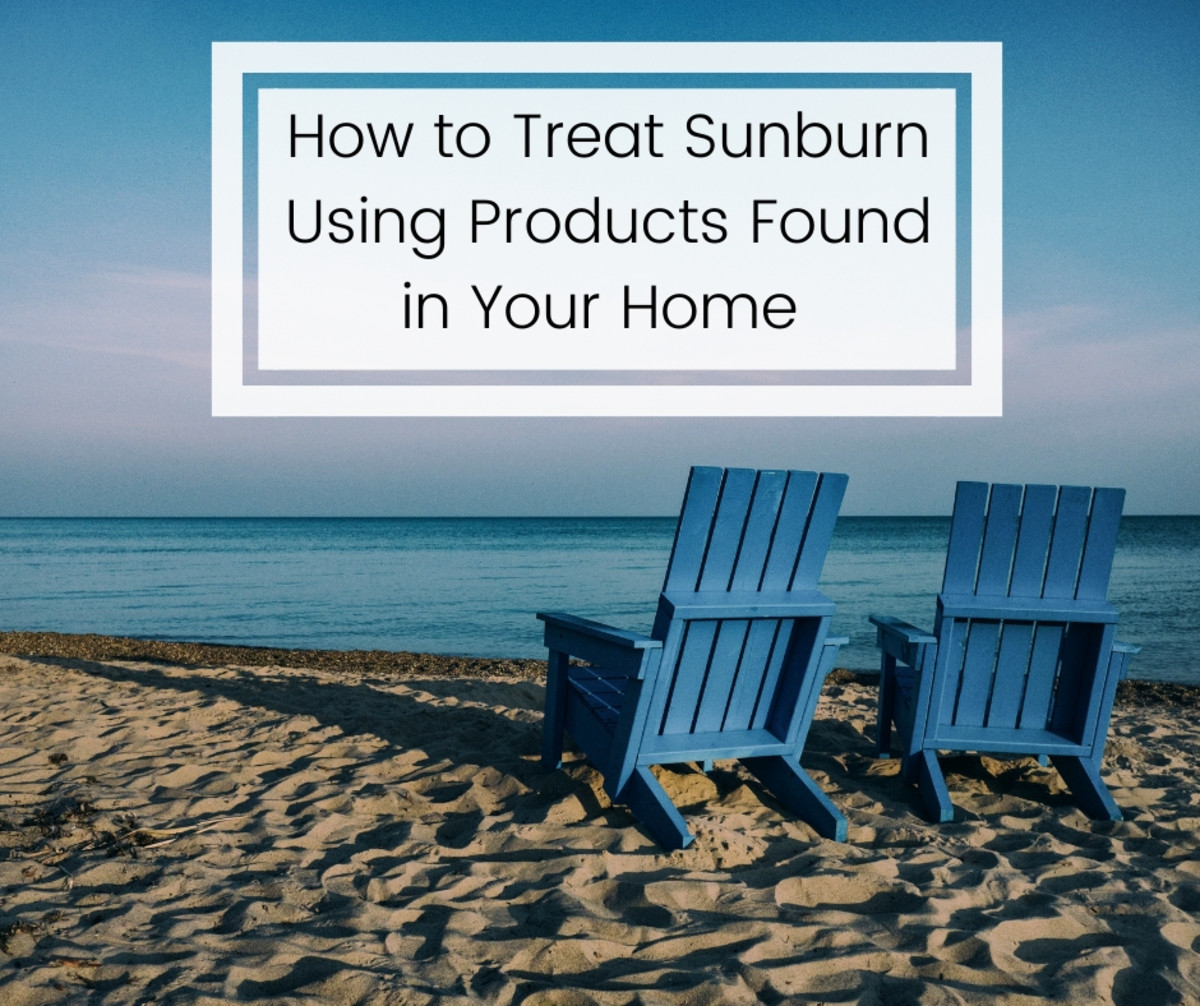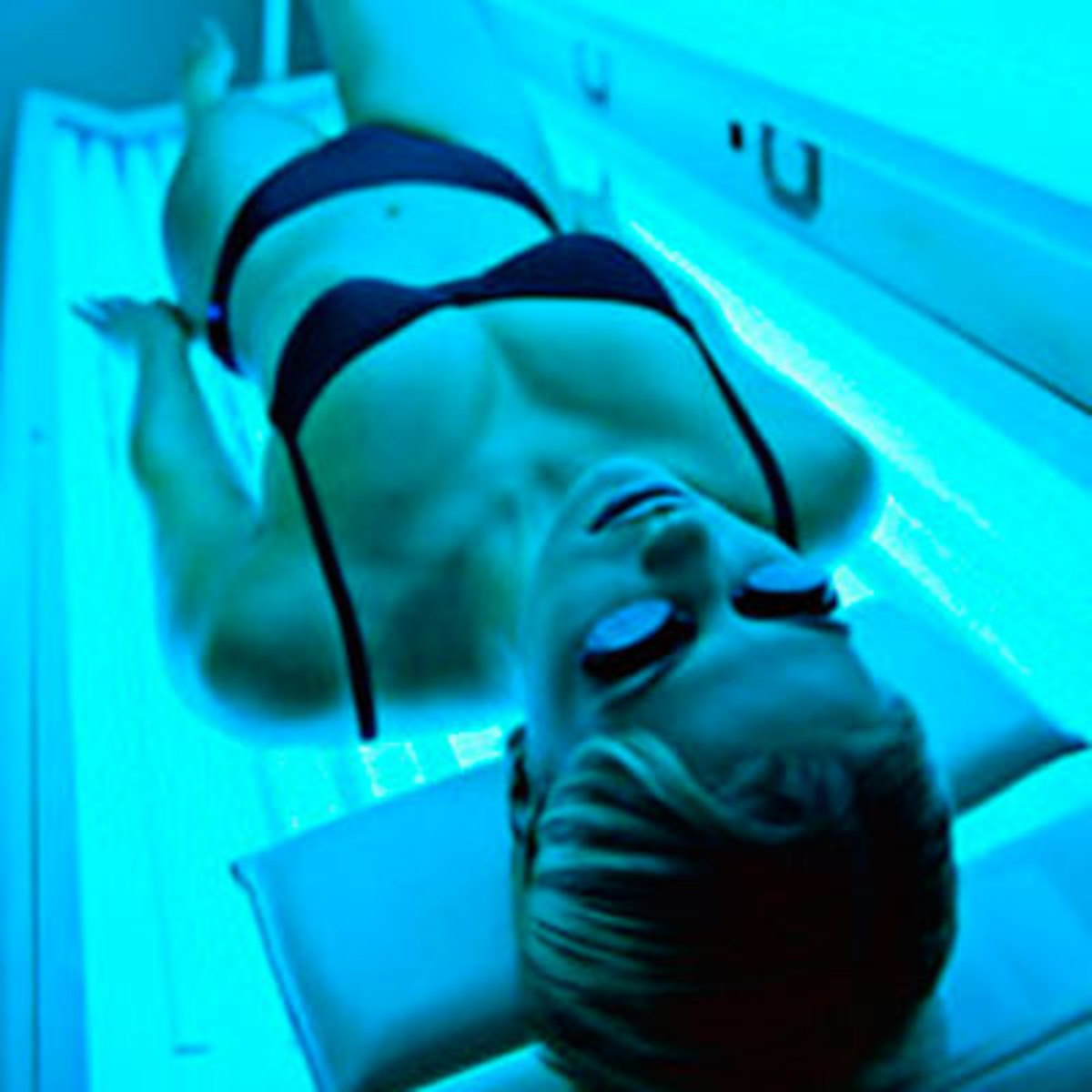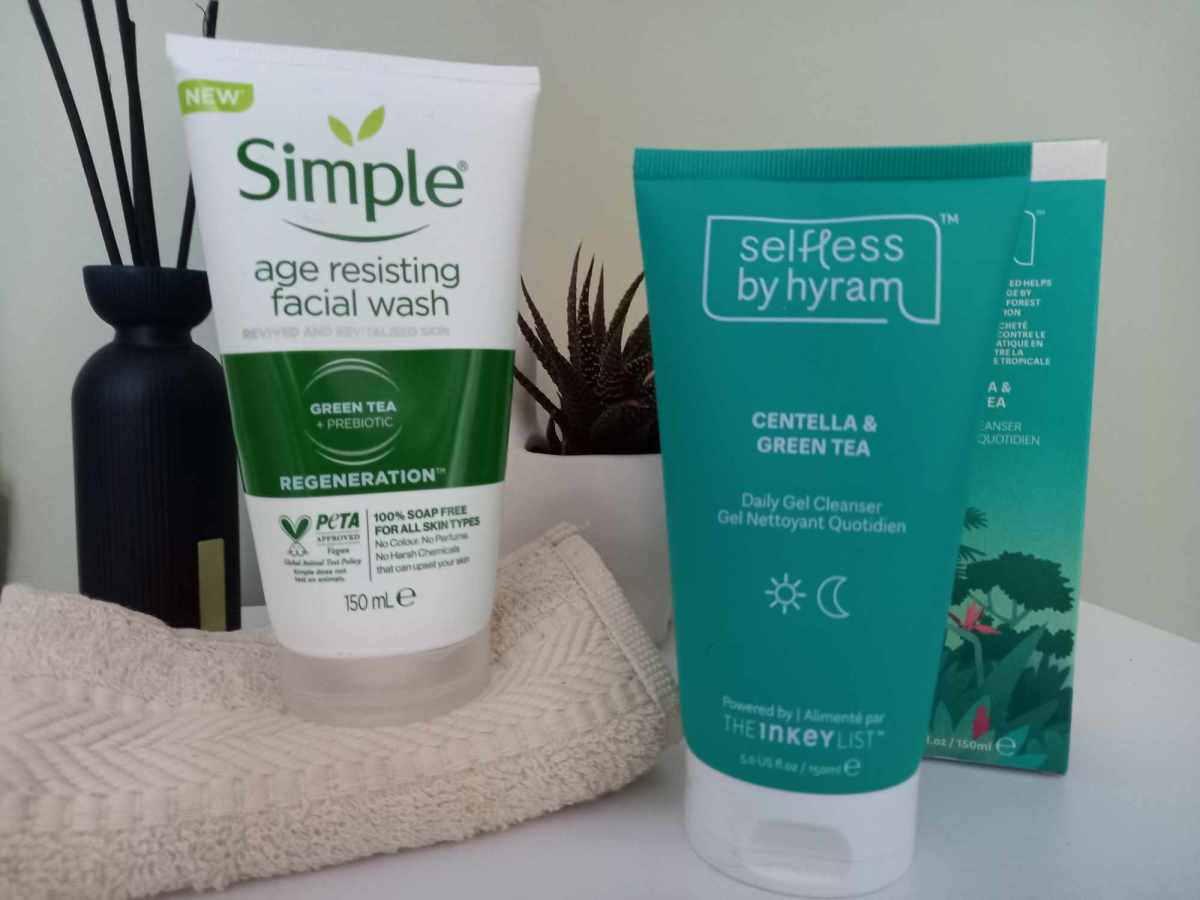Preventing Sunburn and Related Skin Damage
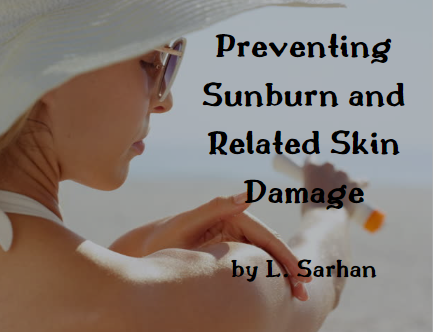
"Use sunblock that protects again UVA and UVB radition."
- Dr. Thomas F. Wright
Poll
Do you typically apply sunscreen before going out in the sun?
Skin cancer is steadily on the rise. In 2005, approximately one million people in the United States alone were diagnosed with some type of skin cancer. One in three cancers diagnosed is skin cancer. The biggest culprit is the sun. Sunburn increases the chance of developing cancer on the skin. Fortunately, there are ways to limit exposure than puts a person at risk.
Know the Right SPF to Use
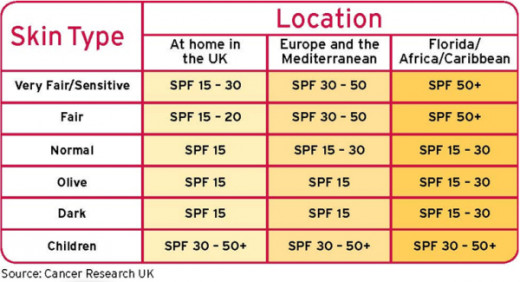
Sunscreen
The best way to prevent damage to the skin, including sunburn, is to use sunscreen. The Center for Disease Control and Prevention suggests wearing sunscreen that has a minimum sun protection factor (SPF) of 15. Granted, the SPF level also depends upon a person's skin type. Fair skin should use SPF 30-50. Those that are tan naturally should use SPF 15-30. People with darker skin could use SPF 8-15.
Sunscreen should be applied 20 to 30 minutes before going out into the sun. This ensures the lotion has been absorbed into the skin. Sunscreen should continue to be applied every two hours. However, if you're sweating or getting wet, you will have to apply sunscreen more frequently.
Don't forget to apply sunscreen to your ears, hands, feet, hairline, and even your scalp where your hair is parted. Zinc oxide is often applied to the nose because it is more likely to be sunburned. Keep in mind that zinc oxide has an SPF of 7 so sunscreen should still be applied first.
Lips are often forgotten when it comes to sunscreen. It is best to use lip balms and lipsticks with a minimum SPF of 15. This type of sunscreen for the lips should be applied more often than the lotion.
Sunscreens to Avoid
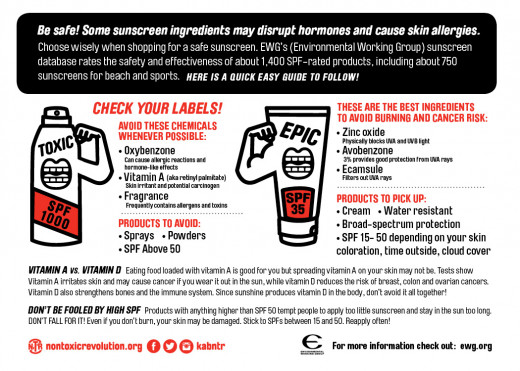
Cover up
Although clothing doesn't block out all of the sun's harmful rays, it does help a little. Hats are essential in deterring the sun's rays from damaging your face and neck. Darker clothing is more effective in blocking ultraviolet rays than lighter clothing. If clothing gets wet, it doesn't provide as much protection as dry clothing.
Consider the Time of Day
The sun's rays are the most harmful between 10:00 am and 4:00 pm. It is best to avoid exposure to the sun during this time by staying indoors. If you can avoid being outside during these times, be sure to cover up and use sunscreen.
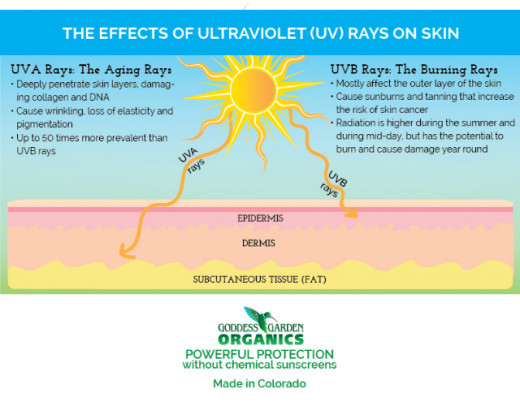
Beware of Reflective Rays
Many people prefer the shade or hide beneath an umbrella however, most people forget about reflective rays. Ultraviolet rays can reflect off of water, concrete, sand, and other surfaces. Even if you plan to spend the day in the shade, sunscreen should still be applied.
Cold and Cloudy Days
Most people fail to realize that the sun's harmful rays can still cause damage even if it is cloudy outside. Although it may be raining outside, the ultraviolet rays still can penetrate any cloud cover.
Winter is no exception. It may be cold outside, but ultraviolet rays are still active. Snow is also reflective and can still cause sunburn. Continue to use sunscreen, even in the winter.
Avoid Sunbathing
Many people are looking forward to working on their tan while lying out at the beach or by the pool. Doctors urge people to realize that there is no such thing as a healthy tan. You may think you look great now, but years down the road you may not be so lucky. If this still isn't a deterrent and you absolutely must tan, consider limiting your time in the sun. Allow your skin time to build up melanin to provide better protection.
Avoid using tanning oils. Tanning oils strengthen the ultraviolet rays thus putting you at a higher risk for sunburn.
Avoid Tanning Beds
Although companies try to convince the public that tanning beds are safe, in actuality, they are worse. Typically a tanning bed produces UVA rays. What many people don't realize is that UVA rays penetrate the skin more deeply than UVB rays. This can cause your skin to dry out and age much faster. It also increases your risk of developing skin cancer.
Photosensitive Medications
If you are currently taking medications, check with your doctor or pharmacist on whether your medications cause photo sensitivities. Some antibiotics and diuretics can cause you to be photosensitive. Even the herbal medication, St. John's Wort, has the same photosensitive effect. This will make you more prone to sunburn.
Overall, it is best to avoid over-exposure to the sun. This doesn't mean you have to avoid the sun like the plague, just simply limit your time in the sun. Above all, use preventative measures to protect your skin when you step outdoors. Planning regular visits with a dermatologist with help aid in early detection of skin damage and disease such as skin cancer.
This content is accurate and true to the best of the author’s knowledge and is not meant to substitute for formal and individualized advice from a qualified professional.
© 2014 L. Sarhan

